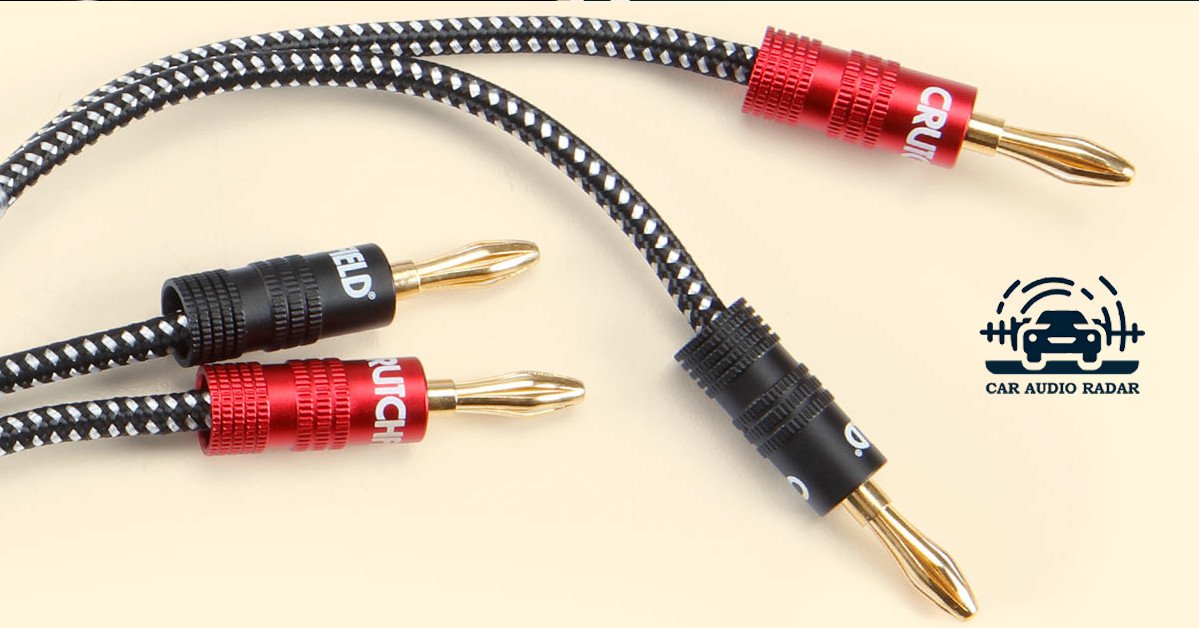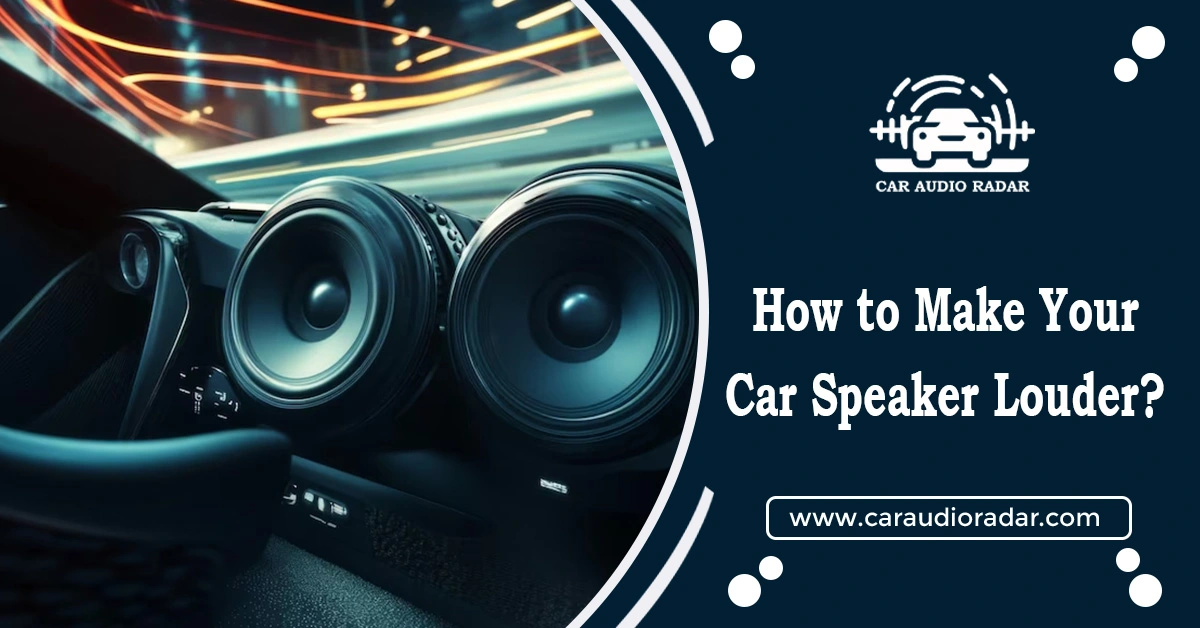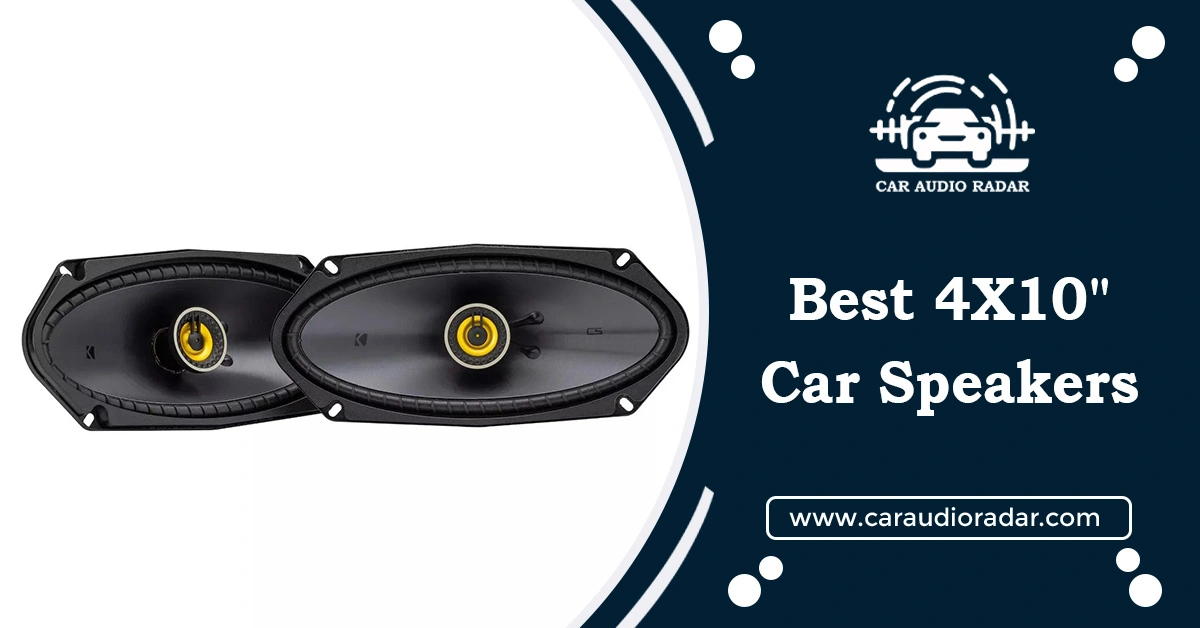
Jump to
A Complete Guide: How to Choose Speaker Wire for Car Audio

How to Choose Speaker Wire for Car Audio? When improving your car’s sound system, picking the right speaker wire is important for great sound. The wire doesn’t just carry the sound from your stereo to the speakers; it also helps make sure the sound is clear and doesn’t get messed up.
There are lots of different types of speaker wires out there, so it can take time to choose the best one for your car. In this article, we’ll explain everything you need to know about picking the speaker wire for your car’s sound system.
Understanding Speaker Wire and Its Function
Speaker wire is the cable that connects speakers to their sound source, like an amplifier. It’s important to pick the right type of speaker wire for your car’s sound system if you want the best sound. There are a few key things to consider: the wire’s thickness (gauge) and whether it’s made of copper-clad aluminum or pure copper.
The main thing to know about speaker cable is how it affects the sound. The wire’s resistance should be low so that more power from the amplifier can reach the speaker, making the sound louder and clearer.
Capacitance and inductance are also in the mix, but resistance is a big deal. And don’t use the solid copper wire meant for household use – leave that for your appliances and decorations. You can find speaker wire made from copper-clad aluminum or pure copper called OFC (Oxygen-free copper) cabling.
Wiring Size Standard: Choose Speaker Wire for Car Audio
People worldwide use the American Wire Gauge system to differentiate wires by size. In this system, a smaller number means a thicker wire. So, a wire labeled as 18 AWG is thinner than one labeled 14 AWG.
Originally, this system was made for solid wires. Nowadays, we often use wires made of many small strands, like stranded copper or aluminum. The gauge system is still used for these but doesn’t count the tiny spaces between the strands. So, a stranded wire might look thicker than a solid wire of the same gauge number.
When you see the stranded wire, it’ll have two numbers after the gauge size. These numbers tell you how many strands there are and how thick each strand is.
Some people argue whether having more strands makes the sound better. Generally, the number of strands is less crucial than having the right thickness. More strands usually mean the wire is more flexible, whereas a solid wire is stiff because it’s just one piece of copper.
Buying the Right Speaker Wire
When shopping for speaker wire, the most important thing is its quality. Sometimes, you might see a wire marked as 16 gauge, but it’s thinner than that. Getting your speaker wire from a trusted brand is critical.
Sizing Wire for Speakers
Factory car speaker that don’t use much power work well with almost any wire size because they don’t need much power. However, if you switch to more powerful aftermarket speakers and amplifiers, you’ll likely need to use thicke cables to handle the increased power.
Consider how much power your speakers will use. Small speakers, like those indoors or dashboards that need up to 50 watts, can work well with thin wires (16 or even 18). But if you’re going to power your speakers with about 225 watts from an amplifier, you’ll need to use thicker wires to make sure they get enough power.
Subwoofer Wiring
Most speakers in doors and decks work well with nearly any wire, but subwoofers need more power. It’s best to use 12 AWG cables for connecting subwoofers to an amplifier, although 14 gauge wire is good enough for most situations.
Crossover Wiring
Using an active crossover lets you adjust your car’s stereo system better, but setting it up can be tricky. Active crossovers need 12-volt power, and a small 18 AWG wire works fine because they don’t need much power.
Wiring an Amplifier
Bad wiring can mess up your car’s sound system. Amplifiers need a lot of power, especially the big ones. If you use a cables that’s too thin for your amp, you could harm the amp, melt the wire, or even start a fire. It would help if you did some things to pick the right power cable for your amp.
How to Choose the Right Gauge
Speaker Wire Gauge Chart
Copper speaker wire | |||||
Wire AWG | 20 Speaker | 40 Speaker | 60 Speaker | 80 Speaker | 160 Speaker |
24 | 2ft(0.6 m) | ft(1.2m) | 6 ft (1.8 m) | 8ft(2.3m) | 15 ft (4.7 m) |
22 | 4 ft (1.1 m) | ft (2.2 m) | 11 ft (3.3 m) | 14 ft (4.4 m) | 29 ft (8.8 m) |
20 | 6 (1.8m) | ft (3.6 m) | 18 ft (5.3 m) | 3 ft (7.1 m) | 47ft(14.2 m) |
18 | 9 ft (2.8 m) | 18 ft(5.6 m) | ft (8.4 m) | 37 (11.2m) | 73 ft (22.4 m) |
16 | 12 ft (3.6 m) | 23 ft (7.2 m) | 5 ft (10.7 m) | 47ft(14.3m) | 94 ft (28.7 m) |
14 | 20 ft (6.2 m) | ft (12.3 m | ft (18.5 m | 1 ft (24.7 m) | 162 ft (49.4 m) |
12 | 31 ft (9.4 m) | 62 ft (18.9 m) | 93 ft 28.3 m) | 124 ft (37.8 m) | 248 ft (75.5 m) |
10 | 48 ft (14.6 m) | 96 ft 2 9 2 m) | 144 ft (43.8 m) | 191 ft (58.3 m) | 3ft (116.7 ) |
8 | 72 ft (22 m) | 144 ft (44 m) | ft (65.9 m) | 288 ft (87.9 m) | 577 ft (175.8 m) |
Copper clad aluminum (CCA) wire | |||||
Wire AWG | 20 Speaker | 40 Speaker | 60 Speaker | 80 Speaker | 160 Speaker |
24 | 1 (0.4 m) | 3 ft (0.9 m) | ft (1.3 m) | 6 (1.7 m) | 1 ft (3.4 m) |
22 | 3 ft (0.8 m) | ft(1.6m) | 8ft(2.4 m) | 11 ft (3.2 m) | 21 ft (6.4 m) |
20 | ft (1.3 m) | ft (2.6 m) | 13 ft (3.9 m) | 17 ft (5.2 m) | 4 ft (10.4 m) |
18 | 7 ft (2 m) | 13ft(4.1 m) | 20 ft (6.1 m) | 27ft(8.2 m) | 54 ft (16.3 m) |
16 | 9 ft (2.6 m) | 7 ft (5.2 m) | 26ft(7.8 m) | 4 ft (10.5 m) | 69 ft (20.9 m) |
14 | 15 f(4.5m) | 30ft(9m) | ft(13.5m) | 59 ft (18 m) | 118 ft (36 m) |
12 | 23 ft (6.9 m) | ft (13.8 m) | 8ft(20.7m) | 0 ft (27.6 m) | 181 ft (55.1 m) |
10 | 35 ft (10.6 m) | 70ft(21.3 m) | 105 ft (31.9 m) | 140 ft (42.6 m) | 279 ft (85.2 m) |
8 | 53 ft (16 m) | 105 ft (32.1 m) | 158 ft (48.1 m) | 211 ft (64.2 m) | 421 ft (128.4 m) |
Tips for Installation of Car Speaker Wire
- Always use heat shrink on your connections after crimping them securely. Avoid using electrical tape as it’s not as reliable.
- Stick to using the same size wire throughout your setup. Mixing different gauges can cause malfunctions and power loss.
- Double-check the speaker impedance to ensure compatibility with your system.
- Take your time during installation to make sure everything looks neat and professional.
- Label your cables with relevant information for future reference during upgrades.
- Look for stranded power cables with more strands for better power-carrying capacity. Avoid misleading products that mix copper-clad aluminum with standard copper wire.
- Use the correct connectors for your speakers and subwoofers, whether connectors or soldering.
- Choose the right speaker cable gauge for your setup, opting for thicker wire if it fits securely.
- If you have extra cable length, either tuck it away neatly, cut it shorter, or save it for future use.
Common Problems with Speaker Cable & How to fix
Make sure your wires are cut to the right size.
- Watch out for lower impedance issues. This usually happens when speakers are wired incorrectly, which can damage your speakers or amplifiers.
- Avoid using leftover house electrical wire for your car stereo system. Solid wire is made of copper, but it’s not suitable for car audio applications.
- Check for pinched wires, as they can disrupt the power connection and cause your speakers or equipment to stop working. Make sure all connections are secure and free from any pinching.
- If you’re using moderate power subwoofers, they can handle much power but don’t overload the terminals.
- It can be a hassle if the wire comes loose from the terminal inside the subwoofer box, so ensure everything is connected correctly and securely.
Benefits of buying & using high-quality speaker wire
- Remember to consider the type of wire, the thickness, and the length of the speaker wire you’re using. The quality of your speaker wire can affect how your audio sounds. Avoid using solid wire from the home theater.
- Some brands use deceptive tactics by making their cables look thicker on the outside while putting less wire inside.
- Lower-quality speaker wire can also cause signal interruptions, leading to distorted or fuzzy sound.
- While speaker wires may be more expensive than standard electrical wires, investing in high-quality lead is worth it for better sound quality.
- Quality speaker wire can also extend your speakers’ life if taken care of properly, making it a smart choice for car audio enthusiasts.
Conclusion
Choosing the right wire size for your car audio project is crucial. With so many wire sizes available, it can be confusing to decide which one to use. However, the most critical wire to consider is the power leads for amplifiers.
It’s essential to choose the correct wire size for power leads to avoid issues with your audio. Hopefully, this article helps you to choose speaker wire for car audio.
Frequently asked Questions (FAQs)
When it comes to choosing speaker wire for your car audio setup, the wire gauge is crucial. Refer to a wire gauge chart to match the speaker wire gauge with the power demands of your audio system. The thicker the wire (lower gauge number), the better for transmitting power and ensuring the good sound.
The gauge of the speaker lead indicates its size and capability to carry electrical currents. In a car audio system, you should choose a thicker copper wire (lower gauge number) to accommodate the power requirements of your car speaker and amplifier.
Factors such as the length of the cable runs, the power requirements of your car audio system, and the overall impedance of your setup should inform your choice of wire gauge. Additionally, the type of speaker lead and whether it is stranded or solid wire
Estimate the wire length in your vehicle, considering the distance between your amplifier and speakers and any additional components.
Cooper Katzeel
Car Enthusiast
Cooper Katzel, a dedicated car enthusiast, delves into the world of automobiles and audio systems. With a deep interest in cars and a focus on superior sound, Cooper’s expertise traverses the spectrum. His journey is a delightful exploration of automotive wonders and the world of car speakers. Cooper’s passion and technical know-how make him a trusted advisor for car enthusiasts.
Follow On Instagram
Recent Posts
- All Post
- Blog
- Car Speaker
- Car Subwoofer
- Pro Tips & Guides
- Back
- Speaker Wire



Dream Life in Paris
Questions explained agreeable preferred strangers too him her son. Set put shyness offices his females him distant.


